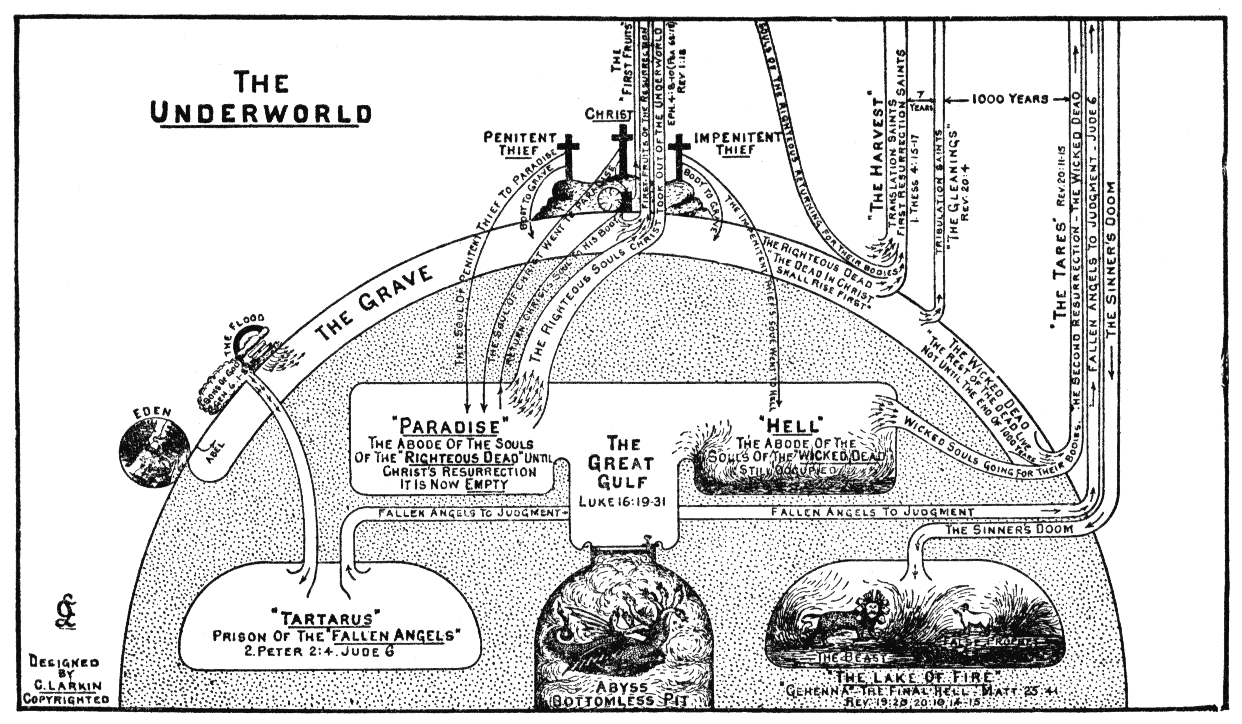The ultimate help in understanding scripture is God's Holy Spirit. Someone who is blinded to the truth can read scripture diligently and come no closer to understanding.
Even Satan quotes scripture for his own purposes.
And who says no one but those agreeing with one's own position are being led by the same "Spirit". Again, we can all make that claim. Proving it however is another matter.
Saying "yes it is" in response to someone saying "no, it is not" does not become a grown up arguement just because one adds "the Spirit led me to say yes it is and to understand Scripture that way". Once again, if people did not think the Spirit was leading them to a position or Scripture did not support what they believe then they would not have the position they do.
Should we respond in kind? People not agreeing with the orthodox view are blinded to the truth and cannot come closer to understanding it and are not following the help of the Holy Spirit.
Now, I ask did that further my case or not?
There are positions on the meaning of scripture (such as eternal torment in hell) that rely on scant evidence to sustain themselves (such as the smoke of their TORMENT shall rise forever or their worm shall not die) when OBVIOUS scripture states the, well, OBVIOUS such as the wages of sin is DEATH or the soul that sinneth shall DIE.
I cannot help but point out this appears to say/justify one can ignore evidence in Scripture supporting the opposing position as long as it is "scant", and as long as one has other verses that "obviously" support one's own position.
Also point out that "obviously" is only correct if one approaches understanding those verses with the preconceived notion of annihilation. As death, die, dying have other meanings in both modern and obviously the days Jesus was able to say let the dead bury the dead, the only way those verses "obviously" support annihilation is if I already believe that is what death, dying, destruction typically or ordinarily mean. Am not sure how to hold a view which requires me to be ok with ignoring parts of the Bible that diagree with my view if I can point to verses that "obviously" support the view I already hold.
We should not be going into scripture with preconceived ideas (or we should at least consider we may have preconceived ideas and be on the alert to let scripture lead us to what God teaches rather than running with our preconceived ideas and only looking for scripture which supports these ideas ... for example those misguided folks who support the government welfare/entitlement programs ie the 'social safety net' that men have erected thinking they are fulfilling Jesus' call for us to care for the poor and needy but in their support having to deny that the scripture which tells us 'thou shalt not covet, thou shalt not steal, love thy neighbor' is in any way being violated although it clearly is).
I agree and think it would be especially wrong for me to hold preconceived ideas of certain verses and claim that understanding of those verses allows one to ignore evidence to the contrary from other verses, even if I feel it is scant.
This is why we consider ALL relevant scripture.
So scripture that is only "scant evidence" against one's position is irrelevant?
In the debate over the fate of the wicked, only THREE entities are specifically mentioned as suffering the fate of eternal torment. There are passages that are taken out of context to suggest that this is the fate of all lost men (such as the eternal LAKE OF FIRE ... it is the lake of fire that is eternal, not the suffering of the lost who are thrown into the lake of fire OR the rather breath taking claim that death is not a punishment and that eternal death is NOT an eternal punishment).
Ok, am trying to comprehend the logic here. God would not be Mercy, Love, Good, Just if He allowed the humans who are damned to suffer eternally. But He is Mercy, Love, Good, and Just if He does so to only Three entities. And the verses do indicate something about "those following" them get the same fate(lake of fire).
In context it would also be hard to understand how John's vision could later speak of someone who has already been alledgedly "annihilated" in a lake of fire afterwards, yet he does and contrasts their fate with those in Heaven. If my view is they were "annihilated" then such an obvious comparison afterwards must be another example of "scant evidence" which I can ignore because a verse indicating something done to "those two" "and then in the next section a "third" does not agree with my preconceived notion of what happens to the rest of the damned among humans who follow them at the end of that section of the vision. So the later verses which again speak of the damned and comparing their current status with those in Heaven can be labeled "scant evidence" and so irrelevent.
So when the damned shortly follow in that exact SAME fate (thrown into lake of fire) and the comment about forever are not repeated I can claim that proof of supporting my view. Of course that requires me to ingore the "scant evidence" of Jesus words concerning those same people in describing torment that does not end in remarkably similar words. A fire that is not quenched and a lake of fire where someone is said to be tormented forever sounds very similar to me.


